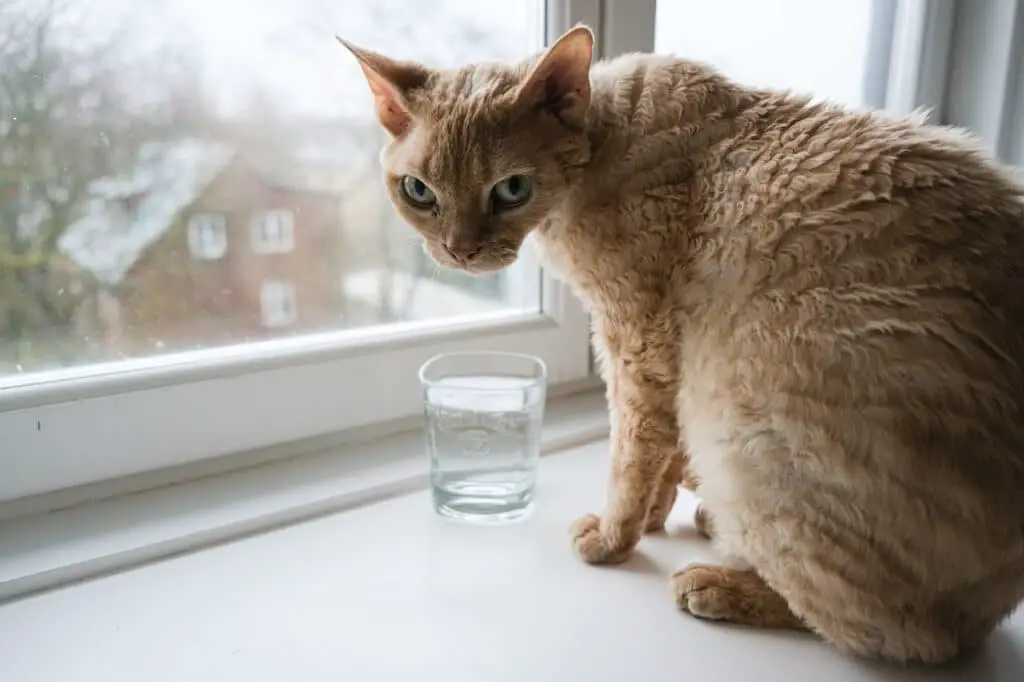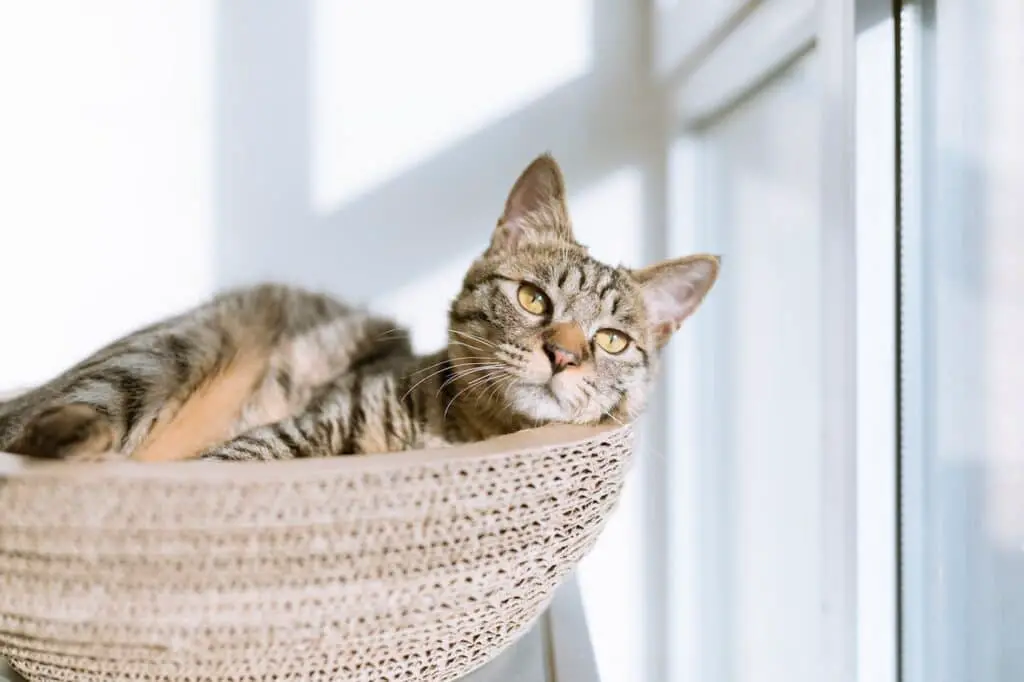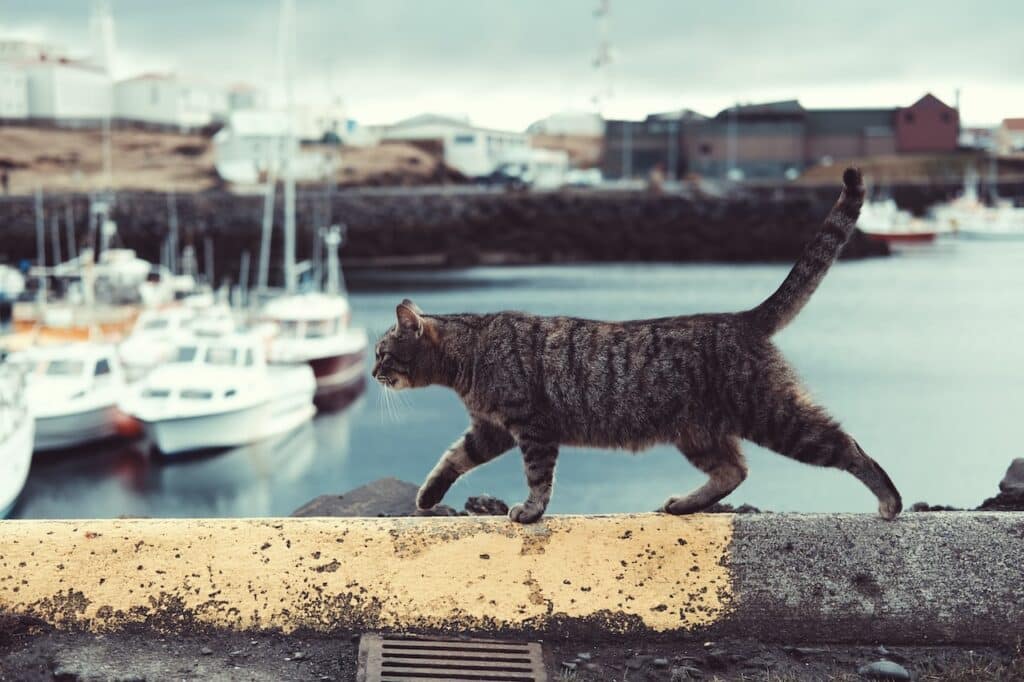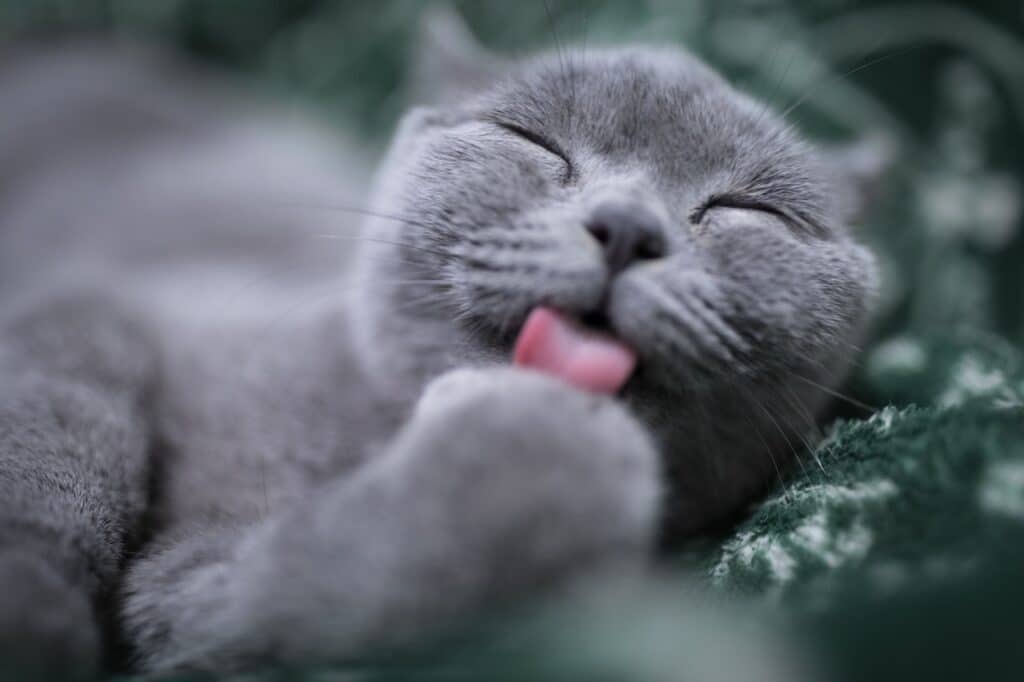People often wonder: “Can cats swim?” or “Why don’t cats like water?” Most house cats aren’t scared of water, but they usually don’t like bathing or swimming. We’ll provide answers to these questions and share interesting facts about cats and water. Some cats swim regularly, and certain breeds might even join you in the shower.
You may be interested in: Signs of an Autistic Cat
Table of Contents

Why are cats afraid of water?
Many cats are scared of water. You might have seen a cat playing with its paw in the water bowl, drinking from the tap, or going outside in the rain.
Some house cats even enjoy sitting in a full bathtub or dipping their paw in an aquarium or garden pond. So, they’re not always shy or afraid of water. However, most cats don’t like getting fully wet or having to swim.
Why don’t cats like water?
There are a few different reasons why cats might not love water or dive into a garden pond.
Cats are originally from the desert, where they don’t have much contact with water. So, it’s not their instinct to swim or feel comfortable in the water. Some wild cats, like tigers and fishing cats from Southeast Asia, do swim because they’ve adapted to different conditions.
Domestic cats can get used to water if they’ve been exposed to it from a young age. But most cats, when submerged, might not like it because they lose their smell, and their fur gets soaked, making them feel heavy and uncomfortable.
Even short-haired cats’ fur can absorb a lot of water, making them uncomfortable or scared while swimming. Unlike wild cats, domestic cats’ fur takes a long time to dry completely. For most cat breeds, getting wet can even pose health risks, but we’ll talk about that later. Now, on to the next question!
Read Also: Why do cats cover their face when they sleep?
Can cats swim?
Another reason why cats usually avoid water might be because they can swim. Can they do that? Surprisingly, yes, most cats can instinctively swim or at least stay afloat.
But be cautious: For a while, people thought every four-legged friend could swim, and that’s not true. Also, don’t assume that all cats can get back to the bank or instinctively keep their head above water.
Even if they can swim, there are other potential dangers for cats when they’re in water.

Which cat can swim?
Now you know that most cats can swim, but not many like to. There are exceptions. Some cats can’t swim because of physical limits or get scared, making falling into the water very dangerous for them.
However, some cats willingly go into the water if they have a good reason. For instance, if they need to cross a river to stay safe and can’t find another way, healthy cats can swim through it easily.
Some cats even like going into shallow parts of lakes or the sea.
Which cats like to swim?
Some wild cats and big cats, as well as certain cat breeds, don’t mind jumping into cool water. These breeds include:
- Bengal
- Maine Coon
- Norwegian Forest Cat
- Savannah Cat
- Siberian Cat
- Turkish Angora
- Turkish Van
If you keep these cats indoors, be careful because some not only tolerate baths but might also jump into the shower or bathtub when they can. Some may even enjoy lying in the sink, waiting for the tap to turn on.
However, if they have access to a garden with a pool, garden pond, or water barrels, their love for water can put them in danger.
Cats who like water
Cats that like water usually got used to it when they were little and had good experiences. If you introduce water to them in a fun way, bathing them later won’t be as hard.
You can help your cat be comfortable with water. For instance, using a big bowl or small basin with a bit of water and a wind-up fish toy can be a great and unique cat toy.
Cat fountains are another way to make water fun for them and encourage better drinking habits.

How dangerous is water for cats?
While most cats can swim if needed, water can still be dangerous for them due to various reasons.
When a cat falls into water, there’s often a significant shock before the instinct to swim kicks in. The cat will try to get back to safety and land, often clinging to objects. However, fear and cold water cause immense energy consumption, making cats exhausted and at risk of drowning, especially if they need to cover more distance to reach solid ground.
Drowning can also happen if a cat falls into a water barrel, pool, or basin without a safe exit, even if they are good swimmers. Always cover water barrels securely and ensure swimming pools have a safe exit. Avoid using tarps or nets as they can trap animals.
Cooling down is another danger because cat fur holds water for a long time. Even lukewarm pool water can lead to hypothermia, weakening the immune system. If your cat falls into water, dry its fur with towels and keep it warm and dry.
Swallowing water or getting it into the lungs during panic swimming can lead to choking or illness if harmful germs are present. Besides the risk of drowning, pneumonia can occur. Watch for signs like fatigue, unusual breathing noises, fever, cough, sneezing, or strangling.
Cats are good at hiding signs of illness, so observe them closely if they’ve been near water or might have swallowed some.

Can I bathe a cat?
Bathing should not be a regular part of caring for cats. If it’s necessary, it’s important to approach it gently, patiently, and carefully. Avoid rinsing the face and instead, use a washcloth to clean it. This helps prevent fear, panic, and the risks of swallowing or inhaling water.
Why are cats scared of water? Cats are usually afraid of water if they’ve had bad experiences with it. Loud or scary noises and moments of shock can also make them averse to water.
Generally, cats are not afraid of water and might even play with it, as long as they don’t get completely wet.